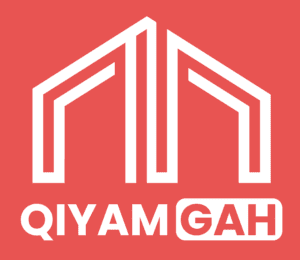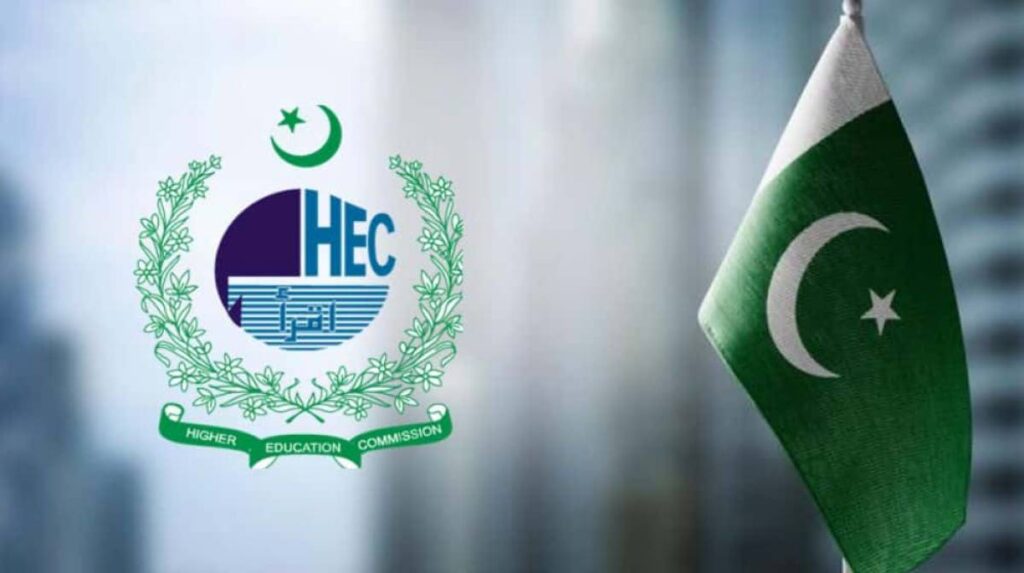A Comprehensive Guide to the HEC Pakistan
The Higher Education Commission (HEC) of Pakistan plays a crucial role in advancing higher education and research within the country. With a focus on improving quality and fostering innovation, the commission oversees the establishment of new universities and colleges while providing scholarships and financial aid to students. Discover the comprehensive overview of HEC’s functions, achievements, and more on Qiyamgah.com
About HEC Pakistan Established in 2002 through the Higher Education Commission Ordinance, HEC is dedicated to enhancing the quality of higher education nationwide. Headquartered in Islamabad, it operates under the supervision of a Board of Governors (BoG) chaired by the Federal Minister for Education. The BoG comprises representatives from academia, industry, and civil society.
HEC’s Key Functions Accreditation and Quality Assurance Ensuring adherence to international quality standards, HEC accredits higher education institutions (HEIs). It maintains a robust system for evaluating HEIs based on criteria like academic programs, faculty, research, and facilities. Regular inspections and evaluations are conducted to monitor their performance.
Development of New HEIs HEC actively supports the development of new HEIs across Pakistan. It provides financial assistance and technical guidance to institutions looking to establish universities or colleges. Additionally, HEC oversees the establishment of new campuses for existing universities and promotes collaborations between public and private entities in the education sector.
Research and Innovation Promoting research and innovation is a key focus for HEC. The commission funds research projects and offers scholarships to both students and faculty members. To foster excellence, it has established specialized research centers in areas such as engineering, medicine, and social sciences. HEC encourages collaboration between local and international researchers and institutions to drive innovation in Pakistan.
HEC Pakistan plays a vital role in developing human resources within the higher education sector. It supports students and faculty members through scholarships and financial assistance to pursue higher education and research both domestically and internationally. The commission also emphasizes capacity-building programs and offers training and professional development opportunities for university administrators.
Fostering International Cooperation HEC has fostered academic and research collaborations by signing memoranda of understanding (MoUs) with universities and research institutions worldwide. It provides financial aid and scholarships to Pakistani students and researchers, enabling them to study abroad or engage in research collaborations.
HEC’s Contribution to Higher Education in Pakistan
HEC envisions transforming Pakistan into a knowledge-based economy by establishing a world-class higher education system that is accessible, equitable, relevant, and quality-oriented. To achieve this vision, HEC has implemented various policies, programs, and initiatives aimed at enhancing key aspects of higher education.
Promoting Access and Equity
HEC strives to increase enrollment and retention rates of students from diverse backgrounds and regions. The commission promotes gender equality and inclusion of marginalized groups, such as persons with disabilities, minorities, and refugees. Initiatives include establishing universities and campuses in remote areas, offering scholarships and financial aid to underprivileged students, supporting distance learning and online education platforms, launching community colleges and vocational training programs, and providing special quotas and facilities for underrepresented groups.
Ensuring Quality and Relevance
HEC ensures that higher education institutions meet national and international quality standards in terms of curriculum, faculty, infrastructure, research, and governance. It focuses on aligning higher education programs with societal and economic needs. Efforts include developing a national qualification framework and accreditation system, conducting regular assessments and university rankings, providing grants and incentives for faculty development and research excellence, establishing centers of excellence and innovation hubs in various disciplines, fostering industry-academia linkages and entrepreneurship support programs, and aligning higher education with the Sustainable Development Goals (SDGs) and the National Vision 2025.
HEC Pakistan plays a pivotal role in fostering a culture of research and innovation within the higher education sector. It provides vital support to researchers through funding, infrastructure, training, recognition, and networking opportunities. The commission actively encourages collaboration among researchers within Pakistan and with international partners.
To enhance research and innovation, HEC has implemented various measures. These include establishing a national research database (Pak-RIS) and a digital library (Pak-DL), supporting research journals (PJCR) and conferences (PCRC), launching thematic research programs (TRGP) and grand challenges (GCF), creating research chairs (PRC) and fellowships (PDF), facilitating patent filing (IPR) and technology transfer (TTC), promoting social sciences (SSRC) and humanities (HRC), and establishing the National Academy of Higher Education (NAHE) to enhance faculty capacity building.
Notable Achievements
HEC has made remarkable progress in achieving its goals since its inception. According to its latest annual report (2019-2020), some of the noteworthy achievements include:
-
Increasing the number of universities from 59 in 2002 to 216 in 2020.
-
Growing student enrollment from 0.276 million in 2002 to 1.9 million in 2020.
-
Boosting the number of PhDs produced from 3,281 in 2002 to 18,603 in 2020.
-
Elevating the number of research publications from 815 in 2002 to 19,541 in 2020.
-
Expanding the budget allocation from Rs. 8.5 billion in 2002 to Rs. 64 billion in 2020.
-
Securing over $1 billion worth of foreign assistance for higher education development projects.
-
Establishing over 50 centers of excellence in various fields.
Challenges Faced by HEC
While HEC has achieved significant milestones, it also encounters challenges that impede its efforts to promote higher education and research in Pakistan. These challenges include:
-
Insufficient Funding: HEC has faced funding constraints since its establishment, limiting its ability to fully realize its objectives. Government funding has not always been adequate to meet the commission’s needs.
-
Political Interference: HEC has encountered instances of political interference, hindering its ability to function independently. Ensuring autonomy and freedom from political influence is crucial for achieving its goals.
-
Quality of Education: Despite HEC’s continuous efforts to enhance the quality of education provided by Pakistani universities, there remains a significant gap compared to international standards.
Since its establishment, the Higher Education Commission (HEC) has played a vital role in promoting higher education and research in Pakistan. The commission has successfully expanded access to higher education, elevated the quality of education provided by universities and colleges, fostered research and innovation, and developed human resources in the sector.
Despite the challenges it faces, HEC remains steadfast in its mission to propel Pakistan towards its full potential in higher education and research.
Frequently Asked Questions (FAQs) about HEC Pakistan:
Q: What is HEC Pakistan?
A: HEC Pakistan is an independent regulatory authority established in 2002 to oversee and promote higher education and research in the country.
Q: What is the main objective of HEC Pakistan?
A: The main objective of HEC Pakistan is to promote higher education and research, ultimately enhancing the country’s knowledge economy.
Q: How does HEC Pakistan promote higher education?
A: HEC Pakistan promotes higher education by providing funding to universities and colleges, offering scholarships to students and faculty members, and conducting capacity-building programs for university administrators.
Q: Does HEC Pakistan provide financial assistance to students?
A: Yes, HEC Pakistan offers scholarships for undergraduate, graduate, and doctoral programs both within Pakistan and abroad.
Q: How does HEC Pakistan ensure the quality of education offered by universities and colleges?
A: HEC Pakistan ensures quality through the implementation of an accreditation and quality assurance system that evaluates the performance of higher education institutions based on international standards.
Q: What are the challenges faced by HEC Pakistan?
A: HEC Pakistan encounters challenges such as insufficient funding, political interference, and the need to address the low quality of education.






